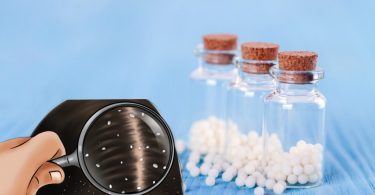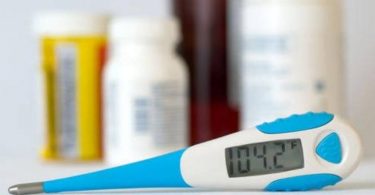Authors:
Dr. Ashok Yadav1, Dr. Apurva Dixit2, Dr. Kanika Agarwal2, Dr. Bhupendra Arya 2, Dr. Manish singh2
1 Professor & Head of Department, Department of Practice of Medicine, Dr. MPK Homoeopathic Medical College, Hospital & Research Centre (under Homoeopathy University), Jaipur, Rajasthan, India
2 PG Scholar (Part-I), Dr. MPK Homoeopathic Medical College, Hospital & Research Centre (under Homoeopathy University), Jaipur, Rajasthan, India
ABSTRACT
Verruca vulgaris or wart is a viral infection caused by Human Papilloma Virus (HPV). The disease usually affects hair on the head but may involve other parts of body. A case of female child with warts treated successfully with Homoeopathy is reported here. She presented with wart on left cheek and under left lower eyelid. She was treated with homoeopathic medicines following holistic concepts of homoeopathy. Causticum was given and the potency was selected as per the response of the medicine upon patient. The result was recovery in period of treatment of approximately 3 months.
KEYWORDS
- Verruca vulgaris 2. Homoeopathy 3. Causticum 4. Similimum
INTRODUCTION
Warts are local growths in the skin caused by Human Papilloma Virus (HPV) infection. There are over 100 types of warts. Risk factors include communal showers, occupational handling and immune suppression. Common warts have been frustration for both patients and practitioners. [1] Common, plantar and flat warts are cutaneous manifestation of HPV.[2] Warts greatly affect a patient’s quality of life by causing embarrassment and frustration caused by persistence and/or recurrence. Moderate to extreme discomfort is reported in 51.7% of patients, and social or leisure activities are affected to a moderate to extreme degree in 38.8%.[3]
CASE PROFILE:
A 13 year female child came in our OPD with the complaint of wart on her face on 20 December 2019. She complained of eruption on her left cheek and below lower eye lid, and brownish hyperpigmentation of skin on left cheek.
History of present complaints & treatment history:
Patient was apparently well. 1 year back she gradually develop wart on left cheek and below left lower eyelid along with hyperpigmentation on left cheek. There is no history of external application, injury and any other treatment.
Physical generals:
Thirst normal but sometimes decrease.
Appetite is good
Aversion to sweets++.
Perspiration on scalp.
Thermal reaction is chilly.
Mentals:
Sympathetic for others, Desire to help everyone++. Contradicts to others. Fear of unpleasant happening. Cannot remain alone+++, want someone to be with her.
Clinical findings:
Appearance – Ectomorphic, Height – 4’7”; Weight – 37 kgs. Other general and systematic examination findings suggest no abnormal sign.
Local Examination:
On inspection of face – soft wart on left cheek and below lower eyelid; brownish hyperpigmented spots on left cheek.
Provisional Diagnosis: Verruca vulgaris
Totality of case:
1. Desire company can’t remain alone.
2. Sympathetic for others, Desire to help everyone.
3. Contradicts.
4. Fear of unpleasant happening.
5. Aversion to sweets
Figure 1: Repertorization of case from Synthesis Repertory using RADAR OPUS Pro 1.41.16 software

First prescription with justification:
Causticum single dose was prescribed after repertorization on the basis of totality of symptoms and 200 CH potency prescribed according to susceptibility of patient and nature of medicine & disease. 200 CH potency was selected and given to avoid any unwanted aggravation. After that patient was given placebo for 15 days.
Table 1 –Follow ups with prescription and justification
| Date | Symptoms | Prescription |
| 20.12.2019 | Wart on left cheek and lower eyelid,without any sensation.Brownish hyperpigmented spots on left cheek (FIG-2) | Causticum 200/ 1 Dose Placebo 30/TDS for 15 days |
| 3.01.2020 | No improvement | Placebo 30/ TDS for 15 days |
| 18.01.2020 | Mild reduction in size of left cheek wart but no improvement in lower eyelid eruption. Hyperpigmented spots same. (FIG -3) | Placebo 30/ TDS for 15 days |
| 5.02 .2020 | No further improvement | Placebo 30/TDS for 15 days |
| 22.02.2020 | No further improvement | Causticum 200/ 1 Dose Rubrum 30/ TDS for 15 days |
| 02.03.2020 | Reduction in size of left cheek eruption and lower eyelid wart. Mild decrease in hyperpigmented spots colour with no change in size of spots. | Rubrum 30/TDS for 15 days |
| 19.03.2020 | No wart on left cheek. But no further reduction in size of lower eyelid eruption. (FIG-4) | Rubrum 30/TDS for 15 days |
CONCLUSION AND JUSTIFICATION:
Physical appearance related issues have become almost important for individuals in this modern era. This was a case of warts in a 13year female child in which complete reduction of wart on left cheek and mild reduction in hyperpigmentation without any external application was achieved along with documentary evidence within a period of 3 months. This case shows positive role of homoeopathy in treating warts and confirms significance of prescription on the basis of reportorial approach and on the basis of totality of symptoms. Homoeopathy believes in holistic individualized approach. The outcome of this case report will improve the knowledge of the clinicians, which will benefit patients suffering from warts.
Declaration
of patient consent
The authors certify that they have obtained all
appropriate patient consent forms. In the form, the patient has given her
consent for her images and other clinical information to be reported in the
journal. The patient understands that her name and initial will not be
published, and due efforts will be made to conceal his identity, but anonymity
cannot be guaranteed.
Financial support and sponsorship
Nil.
Conflict of Interest
None.
Refrences:
- Leman JA, Benton EC. Verrucas. Guidelines for management. Am J Clin Dermatol 2000;1:143–149.[pubMed]
- Bacelieri R, Johnson SM. Cutaneous Warts: an evidence – based approach to therapy. Am Fam Physician.2005;72(4):647-652. [PubMed]
- Ciconte A, Campbell J, Tabrizi S, Garland S, Marks R. Warts are not merely blemishes on the skin: A study on the morbidity associated with having viral cutaneous warts. Australas JDermatol 2003;44:169–173. [pub Med]








